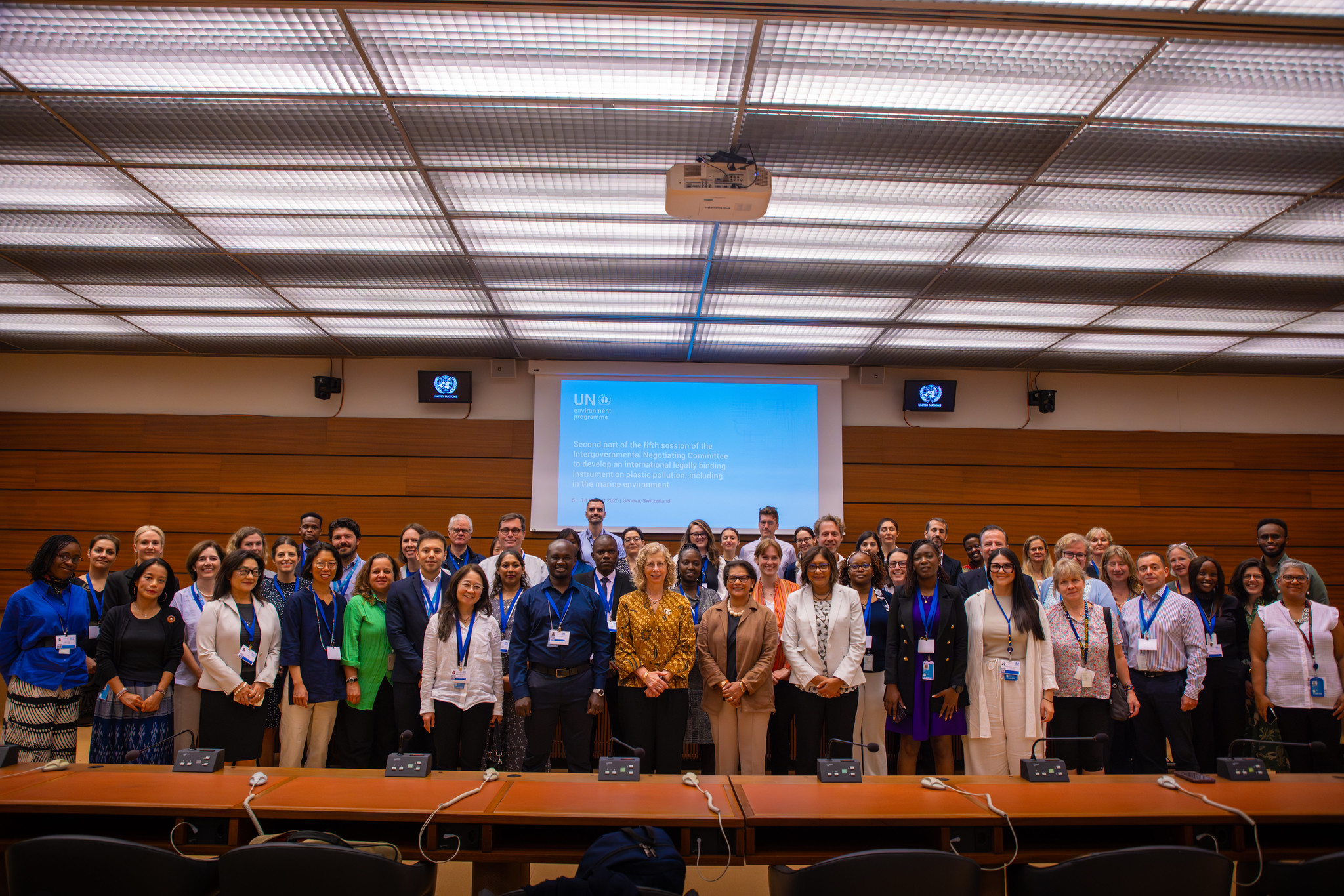
2022 Geneva Plastics Talks Collapse Again Without Treaty
Delegates frustrated as Muslim News hears calls for stronger action against fossil fuel interests
Delegates were seen with their heads in their hands, exasperated after 10 days of negotiations that again ended without a consensus on how to tackle plastic pollution.
Delegates from 183 countries and over 1,000 observers convened in Geneva, Switzerland, for INC-5.2, the second part of the fifth session of the Intergovernmental Negotiating Committee to develop an international legally binding instrument on plastic pollution, including in the marine environment.
Luis Vayas Valdivieso, Ecuador’s ambassador to the UK, chairs the INC and sent a proposed text to delegates on the evening of August 13, two days before the closing ceremony, after a week of contentious talks. Participants expressed deep frustration with the draft, which disregarded many of the delegates’ stated red lines. After adjourning meetings without announcing when they would reconvene, participants expressed exasperation with the poor leadership and suggested overhauling the process.
This is the second time plastics negotiations have ended without a signed treaty. INC-5.1 took place in Busan, South Korea, late last year. Countries inundated with plastic pollution must negotiate with oil-producing countries, exposing widely misaligned interests.
Normally, in diplomatic negotiations, there is a prevailing sentiment that “something is better than nothing”; however, Greenpeace’s Middle East and North Africa Campaigner, Farah al Hattab, told The Muslim News,“No treaty is better than a weak one that fails to address the full life cycle of plastic pollution and lacks strong financial mechanisms to support Global South countries in implementing the treaty and ensuring a fair transition to a plastics-free future.”
Luis Vayas Valdivieso, Ecuador’s ambassador to the UK, chairs the INC (Credit: UNEP/Flickr Commons)
The sentiment displays how environmental advocates, particularly those from vulnerable nations, are tired of compromising with fossil fuel interests over dire environmental issues.
The negotiations ran into the same contentious issues as in previous meetings — production limits, waste, and banning toxic chemicals. These issues were red lines for Saudi Arabia, Russia, and India, who refused to accept such stipulations, and Chile and Colombia, who would not sign without their inclusion. Plastic-producing countries were vocal in their opposition to any regulations that would interfere with their economic interests and sought weaker language that promoted recycling, redesign, and reuse.
Nations such as Panama, Fiji, and Kenya criticised the weak draft text, which appeared to capitulate to such interests, calling it unacceptable. Al Hattab takes issue with the idea that oil-producing countries cannot be highly ambitious on a plastics treaty, warning:
“We should be cautious about accepting the narrative that oil and gas production is inherently incompatible with a strong plastics treaty. In fact, the opposite can be true: a robust treaty can serve as a catalyst for economic diversification beyond the oil and gas sector.”
Plastic pollution is an environmental problem that significantly affects human and ecosystem health. According to the United Nations, each year 430 million metric tonnes of plastic are produced, accounting for 85% of total marine waste. Microplastics are a more recently discovered threat and have been found in the human brain and even in the placentas of unborn babies.
Studies have shown that plastics can negatively affect the body’s endocrine system, which regulates hormones and can affect metabolism, reproductive health, and development. “Despite their adverse health effects, chemicals in plastics can be difficult to regulate globally, particularly for Global South nations, which may not have the infrastructure to assess them,” argued al-Hattab, who was a delegate at the conference.
Given the ubiquity of plastics — used for food and drink packaging, synthetic clothing, piping and plumbing equipment, toys, electronics, etc. — it is little wonder that it has become a major environmental pollutant. Plastics are made from petroleum, and most of them will not break down in the environment for 20–500 years. Businesses are the largest culprits, and consumers have grown accustomed to single-use disposable products, which are considered more convenient than reusable products.
Still, many individual consumers are turning towards a plastic-free lifestyle; however, given the significant amount of pollution generated by the private sector, voluntary reductions are unlikely to yield substantial reductions in plastic waste pollution overall.
The next round of negotiations has yet to be added to delegates’ calendars. Given the failure to reach a consensus during successive meetings, participants may demand an overhaul of the system or suggest new leadership.
UN Environment Programme Executive Director, Inger Andersen, expressed hope in the fact that delegates continued to participate in negotiations despite not reaching a consensus, stating:
“This has been a hard-fought 10 days against the backdrop of geopolitical complexities, economic challenges, and multilateral strains. However, one thing remains clear: despite these complexities, all countries clearly want to remain at the table.”
According to Greenpeace, “UK households throw away approximately 96 billion pieces of plastic packaging a year.”
Photo: The fifth session of the Intergovernmental Negotiating Committee on plastic pollution, including in the marine environment (INC-5.2). (Credit: Florian Fussstetter/ UNEP)
By Sarah Sakeena Marshall, Data Assistant
Do you want me to also add WordPress tags and meta description (SEO-ready) for this article?